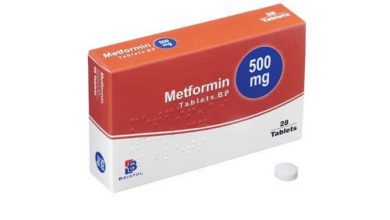What Do Successful Diets Have In Common?

The weight loss industry (in the form of books, diets, pills and endless remedies) is today a mega-millionaire. Losing weight even seems like the dream goal for millions of people. Although the followers of each diet defend and assure that their plans are the best, the reality is that successful and healthier diets share many things with each other.
Among so many proposals, you have to separate the wheat from the chaff, that is, what works from what doesn’t. If we consider all types of effective and scientifically proven diets and join all the dots where they coincide, we will discover the authentic keys to staying slim.
How do successful diets coincide?
According to a Yale University analysis , successful diets are based on natural foods with very little processed content. To understand it better, below we review those characteristics in which they undoubtedly coincide.
1. They can be maintained in the long term
A good diet should become your lifestyle, so healthy diets are easy to follow in the long term. In fact, experts say they should become a simple habit for the rest of your life.
Going on unwise diets could be one of the leading causes of premature death and chronic disease. On the contrary, optimal nutrition is associated with longer life expectancy, according to Yale University.

2. Successful diets eliminate sugar
This may sound like “low carb” advocates. However, restricting and even eliminating white sugar has today become an almost absolute consensus point that is even reflected by the World Health Organization in its nutrition recommendations.
Today we know that sugar helps the liver to manufacture body fat as well as increases bad cholesterol and triglycerides. In general, its consumption interferes with physical and mental well-being.
3. Include vegetables
Even diets restricted in carbohydrates, such as the Paleo Diet, in its various variants emphasize consuming abundant vegetables (broccoli, artichokes, green beans, cabbages, spinach, peppers …).
Some diets that work may restrict fruit (although they all accept some non-glycemic fruit like green apple or berries), but for vegetables the message is clear: eat plenty.
4. Promote moderate weight loss
Diets such as bi-protein or Perricone, rated among the best for weight loss by the European Medical Institute for Obesity (IMEO), have in common that they promote healthy weight loss, because it is about eliminating the extra kilos and your health is better.

5. Successful diets focus on quality
Since it is not only the amount of food that is eaten that matters, but that it is of the best quality. It does not mean that everything has to be organic and fresh, as there are products like whole wheat pasta that are really healthy.
6. Eliminate trans fats , restrict industrial vegetable fats
The debate over trans fats (we identify them on labels as “hydrogenated” or “partially hydrogenated”) has long been closed: they are the worst conceivable dietary fats. Even the state of California is prohibited by law from using it in restaurants.
Trans fats are actually artificial, laboratory fats (technically produced by hydrogenating vegetable fats), and they cause inflammation in the body, cardiovascular disease and a myriad of health problems.
Industrial vegetable fats (sunflower, soy and corn), although less questioned, are at least limited in all successful diet programs. These types of fats are associated with oxidation, inflammation and vascular problems. Instead, all diets that work recommend extra virgin olive oil.
7. They are satiating
Living hungry, whether you are trying to lose weight or fight diabetes through diet, is not a requirement. Healthy meal plans include the amounts of food, calories, and nutrients necessary for your body to be satisfied and have enough energy.
Now that you know what successful diets have in common, we recommend that you follow the one that best suits your condition. If you have any questions, consult a professional. The doctor or nutritionist can help you choose a diet according to your current health, age, habits, among other factors.









